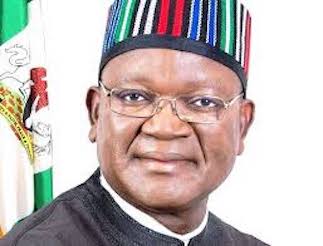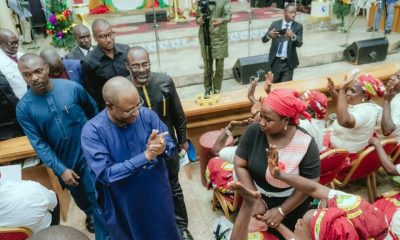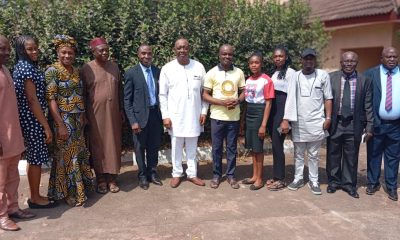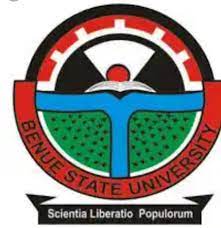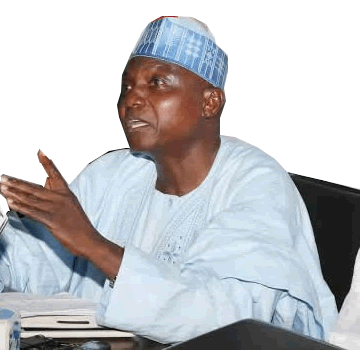COVER
Nigeria’s Debt to World Bank Increases by $1.3bn in One Year – DMO
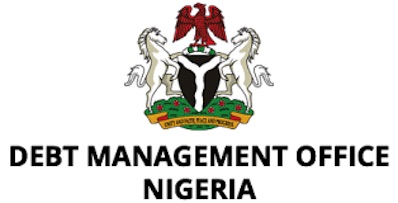
By Tony Obiechina, Abuja
The Debt Management Office has said that Nigeria’s total debt to the World Bank Group has increased by $1.3bn in one year from $8.39 billion to $9.81 billion as at September 2019.
The nation’s debt office disclosed this in its latest report said that Nigeria’s debt to the IDA and IBRD stood at $9.
41bn and N409. 51m as of September 30, 2019, compared to $8. 39bn and $124m in September 30, 2018.The debt office said new domestic borrowings this year (N1.59tn) would be raised through FGN Bonds, Sukuk, FGN Savings Bonds and possibly green bonds.
The International Bank for Reconstruction and Development and the International Development Association, which make up the World Bank, have over the years advanced loans to Nigeria.
The IBRD lends to governments of middle-income and creditworthy low-income countries while the IDA provides concessionary loans – called credits – and grants to governments of the poorest countries.
The total amount of loans approved by the World Bank for Nigeria had reached $24.68bn, data obtained from the multinational development bank showed.
As at December 31, 2019, the Africa’s largest economy had secured $7.14bn loans from the IBRD and $17.54bn loans from the IDA, according to the World Bank data.
The IBRD and IDA cancelled $971.04m and $1.77bn respectively of the approved loans.
The data showed that a total of $16.89bn had been disbursed to the country, with $5.72bn from the IBRD and $11.17bn from the IDA.
The country had repaid a total of $6.45bn to both institutions ($5.29bn to the IBRD and $1.16bn to the IDA).
The loans, many of which are still being disbursed, were approved for 177 projects in the country, with the first loan secured in 1947.
In November 2019, $75m was approved for the Second Africa Higher Education Centres of Excellence for Development Impact project.
In 2018, $27.4m was approved for the North Core/Dorsale Nord Regional Power Interconnector Project; $125m for the Fiscal Governance and Institutions Project; $225m for the Nigeria-Accelerating Nutrition Results;$150m for the Polio Eradication Support Project; and $100m for Nigeria for Women Project.
Other projects for which loans were approved in 2018 were the States’ Fiscal Transparency, Accountability and Sustainability PforR ($750m); Nigeria Electrification Project ($350m); NG-Electricity Transmission Project ($486m); and Nigeria Erosion and Watershed Management Project ($400m).
In 2017, $611m was approved for Better Education Service Delivery for All; $159m for the Nigeria: Mineral Sector Support for Economic Diversification Project; $90m for the Regional Disease Surveillance Systems Enhancement Phase II; $200m for the Multi-Sectoral Crisis Recovery Project for North Eastern Nigeria; and $200m for the Agro-Processing, Productivity Enhancement and Livelihood Improvement Support Project.
The nation’s total public debt rose to N26.22tn as of September 2019 from N25.70tn in the same period of 2018, according to the DMO.
According to the DMO the 2019 Appropriation Act provided for a total new borrowing of N1.61 trillion split equally between domestic and external debt, but only the domestic component of N802.82 billion was raised due to the late passage of the 2019 budget and the expectation that the implementation of the 2020 budget would commence on January 1.
It said total debt as a percentage of the GDP was 18.47 per cent as of September 2019 and was well within the limit of 25 per cent but “the low revenue base of Nigeria relative to its GDP is clearly reflected in the high debt service to revenue ratio.”
COVER
Tinubu Orders Investigation into Ibadan Stampede Incident

By David Torough, Abuja
President Bola Tinubu has directed the relevant authorities to investigate the circumstances that led to the tragic incident at the Children’s funfair in Ibadan, which resulted in the loss of lives and injuries.
Presidential Spokesman Bayo Onanuga, in a statement stressed the importance of determining whether negligence or deliberate actions contributed to this painful development, ensuring a transparent and accountable process.
The president, who expressed profound sadness over the tragic incident on Thursday, extended condolences to the government and people of Oyo State, as well as to the grieving families who have lost their beloved children.
The statement read, “In this moment of mourning, President Tinubu stands in solidarity with the affected families and offers prayers that the Almighty God will grant peace to the souls of those who have departed in this unfortunate event.
“President Tinubu has urgently directed the relevant authorities to investigate the circumstances of this tragedy thoroughly. He emphasises that it is imperative to determine whether negligence or deliberate actions contributed to this painful incident, ensuring a transparent and accountable process.
“The President urges the Oyo State Government to take every necessary measure to prevent such a tragedy from reoccurring.”
The president wants a comprehensive review of all public events’ safety measures, strict enforcement of safety regulations, and regular safety audits of event venues.
He called on event organizers to prioritize the safety of all attendees, especially children, just as he stressed the importance of integrating professional security, protocol, and logistics at events to ensure the utmost safety of all participants.
According to the president, “Our children’s safety and well-being remain paramount. No event should ever compromise their safety or take precedence over their lives.”
So far, police have confirmed that 35 children died while six others were critically injured.
According to a statement by the Oyo State Police Command through the spokesman, Adewale Osifeso, yesterday, the organisers of the event, including the main sponsor, Naomi Silekunola, the estranged wife of the Ooni of Ile-Ife, Oba Adeyeye Enitan Ogunwusi, and her media partner, Agidigbo FM, the principal of the school, and five others, have been arrested in connection with the tragedy.
The police stated that the event was organised by the Wings Foundation and media partners Agidigbo FM, without proper permission or safety measures in place.
The police said they have commenced an investigation into the incident and have promised to bring those responsible to justice.
COVER
Wike Revokes Buhari’s Land Title as Soldiers Assault Officials

By Laide Akinboade, Abuja
Minister of the Federal Capital Territory (FCT), Nyesom Wike has revoked the land title of former President Muhammadu Buhari for nonpayment of statutory fees.
A public notice issued yesterday by the Federal Capital Territory Administration (FCTA) showed that titles for 762 plots of land in the Maitama district of Abuja were revoked over failure to pay charges for Certificates of Occupancy (C-of-O).
A former Chief Justice of Nigeria, Walter Onnoghen was also affected.FCTA also threatened to withdraw the Right of Occupancy (R-of-O) of 614 other individuals and companies if they fail to pay outstanding bills for their plots within two weeks.
The FCTA notice read, “The Federal Capital Territory Administration wishes to inform the allottee(s)/title holder(s) of plots of land in Maitama 1 who have failed to make payment for their Certificate of Occupancy (C-of-O) bills that their Right of Occupancy to the land/property has been withdrawn.”
According to the administration, this action was taken under Section 28 of the Land Use Act of 1978, which empowers the minister to revoke Right of Occupancy for non-compliance with payment obligations or breach of other allocation terms.
The Cs-of-O of the Muhammadu Buhari Trust Foundation owned by former President Muhammadu Buhari; former Chief Justice of Nigeria (CJN), Walter Onnoghen; Speaker of the House of Representatives, Abbas Tajudeen; Secretary to the Government of the Federation (SGF), George Akume; his wife, Regina; and Uba Sani, governor of Kaduna were revoked.
Also affected are: former and serving lawmakers: the Senate Chief Whip, Tahir Monguno; former Deputy Speaker of the House of Representatives, Chibudom Nwuche; former Senate Leader, Teslim Folarin; former House of Representatives member, Nnenna Ukeje; Andy Uba and Smart Adeyemi, both former senators.
Wike, who assumed office in August 2023 has consistently emphasised his commitment to enforce order in Abuja’s land administration.
It was however a tough task for men of the Department of Development Control who were on mission to pull down unapproved structures.
Soldiers allegedly following the orders of an Army General on Wednesday evening attacked Development Control officials who were in Sabon Lugbe, Abuja to remove illegal structures in the area.
The officials were to remove the fence of a building on Plot 416 said to belong to one Major General.
An official of the department narrated their ordeal: “During this operation, there was an incident that happened at Plot 416 Sabon Lugbe that belongs a Major General.
“When the assignment was going on, the Major General got information…He sent two soldiers from his house to ascertain the situation.
“On getting to the scene, the soldiers who drove a vehicle wit covered number plate blocked the way out of the house to prevent the enforcement team from coming out of the premises, threatening that somebody must die today.
“Private Jamilu [second name unknown] went straight to the caterpillar operator, cocked his rifle and pointed straight to him to come down or risk being shot immediately.
“He politely came down but was grabbed by the two soldiers who squeezed his neck with his clothes, beat him mercilessly and tore his shirt.
“Private Jamilu pulled his rifle and fired the four tyres of the caterpillar flat. He then called the Major General to come along with more soldiers for reinforcement, and he came with them in numbers.
“He ordered his men to take Sector Sodangi and his site officer to his house, beat them even right from outside alongside six enforcement officials who were also taken hostage for hours.
“Three Hilux vehicles were taken to the Major General’s house while the remaining vehicles that they could not lay hands on had their tyres flattened with gun shots.
“On receiving the information, the DPO Trademore came to the scene but the Major General refused to take compliments nor listen to her. She left and said she would come back.”
Director of the department, Mukhtar Galadima did not respond to our reporter’s enquiries. Also, the Director of Press, Office of the Minister, Anthony Ogunleye couldn’t be reached.
This is not the first time officials of the department have suffered attack. It has been a hazard they confront frequently in the course of their work.
COVER
2025 Budget: Tinubu Presents N47.90trn Estimates to NASS

By Ubong Ukpong & Eze OkeChukwu, Abuja
President Bola Tinubu yesterday presented his administration’s ambitious N47.90 trillion budget estimates for 2025, assuring the people of the administration’s readiness to continue stimulating the economy through targeted fiscal stimulus packages, public expenditures, and non-inflationary spending.
While presenting the budget titled, “Budget of Restoration: Securing Peace, Rebuilding Prosperity,” to a joint session of the National Assembly, the president reiterated his unwavering commitment to rebuilding Nigeria and ensuring a prosperous future for the nation.
A breakdown of the proposed 2025 budget allocations showed the following: Defence and Security, N4.
91 trillion; Infrastructure, N4.06 trillion; Health, N2.48 trillion; and Education, N3.52 trillion.He said, “As we embark on implementing the 2025 budget, our steps are deliberate, our decisions resolute, and our priorities are clear.
“This budget reflects a renewed commitment to strengthening the foundation of a robust economy while addressing critical sectors essential for growth and development.”
On national security, Tinubu assured the public that his administration had “significantly increased funding for the military, paramilitary, and Police Force to secure the nation, protect our borders, and consolidate government control over every inch of our national territory.”
He said his government would continue to equip the security forces with the modern tools and technology necessary to safeguard the country.
“The officers, men, and women of our Armed Forces and the Nigerian Police Force are the shields and protectors of our nation.
“Our administration will continue to empower them to defeat insurgency, banditry, and all threats to our sovereignty,” the president noted.
On infrastructure development, the president explained, “When we launched the Renewed Hope Infrastructure Development Fund, it was with the conviction that infrastructure remains the backbone of every thriving economy.
“We are accelerating investments in energy, transport, and public works. By leveraging private capital, we hope to complete key projects that drive growth and create jobs.”
Tinubu shared his administration’s commitment to improving human capital development, revealing that the government had disbursed N34 billion to over 300,000 students via the Nigeria Education Loan Fund (NELFUND).
“In the 2025 Budget, we have allocated N826.90 billion for infrastructure development in the educational sector, including allocations for the Universal Basic Education (UBEC) and nine new higher educational institutions,” he said.
For healthcare, Tinubu emphasized the importance of Universal Health Coverage initiatives and announced an allocation of N402 billion for infrastructure investments in the health sector, with an additional N282.65 billion for the Basic Health Care Fund.
He added that his administration would continue its efforts to reduce medical import dependency and ensure quality healthcare for all Nigerians.
On corruption, Tinubu asserted, “Our nation faces existential threats from corruption and insecurity and suffers from many past poor choices. These challenges are surmountable when we work collaboratively to overcome them.
“We must rewrite the narrative of this nation together, with every leader, institution, and citizen playing their part.”
He urged Nigerians to look towards a brighter future and to support greater investment in the private sector, saying, “The time for lamentation is over. This is a time to act.”
He stressed that the 2025 budget proposal lays the foundation for peace, prosperity, and hope, emphasizing that his administration’s journey of economic renewal and institutional development, which began 18 months ago, is well underway.
He said that Nigeria’s economy is responding positively to the fiscal stimulus measures, with growth projected at 3.46 percent in the third quarter of 2024, up from 2.54 percent in the same period of 2023.
He shared the 2025 budget’s revenue targets, with a proposed N34.82 trillion in revenue and N47.90 trillion in government expenditure, including N15.81 trillion for debt servicing.
The president projected inflation would decline from 34.6 percent to 15 percent, with an improved exchange rate of N1,500 per US dollar and crude oil production pegged at 2.06 million barrels per day, stating that, “This is an ambitious but necessary budget to secure our future.”
The President of the Senate, Godswill Akpabio in his opening remarks said, “Your Excellency, we commend you on your groundbreaking tax reform initiative.
“The four tax reform bills—the Joint Revenue Board of Nigeria (Establishment) Bill, 2024; Nigeria Revenue Service (Establishment) Bill, 2024; Nigeria Tax Administration Bill, 2024; and Nigeria Tax Bill, 2024, represent a monumental shift in our fiscal landscape.
“It is disheartening that those who have not taken time to understand these bills are the loudest critics.
“I urge all Nigerians, especially those in public office, to engage with these vital reforms thoughtfully.
“This initiative marks the first comprehensive tax reform since Nigeria’s independence, presenting a transformative opportunity for rejuvenating small and medium enterprises and enhancing the livelihoods of ordinary Nigerians.
“These reforms will not only improve Nigeria’s revenue profile but also create a more conducive and internationally competitive business environment, transforming our tax system to support sustainable development.
“We will not kill any reform that you have forwarded to us for consideration Mr President but rather engage Nigerians to see the merits in them.”
In his vote of thanks, the House of Representatives Speaker, Tajudeen Abbas said the government needs to reflect on the fiscal realities of Nigeria’s economy, especially the budget-population ratio of the country, when Nigeria is compared with other countries in Africa.
The Speaker noted that the Tinubu administration has taken bold and decisive steps to reform the economy in the past 18 months, stressing that removing fuel subsidies, unifying foreign exchange rates, and introducing innovative economic policies have laid a solid foundation for sustainable growth and development.
Abbas said while these reforms have demanded short-term sacrifices, they are acts of courage and patriotism.
He cited examples from China’s market reforms, India’s liberalisation, and South Korea’s industrialisation which, he stated, affirm the enduring benefits of such bold action. “These lessons inspire confidence that Nigeria’s ongoing reforms will foster economic growth, reduce poverty, and ensure long-term prosperity,” he stated.
The Speaker stated that the Tinubu administration’s reforms have “disrupted the status quo, sparking resistance from vested interests,” noting that, “Yet these courageous measures underscore your resolve to prioritise the welfare of Nigerians.”
The Speaker noted that the proposed 2025 budget of N49.7 trillion— a 35 percent increase over 2024— is “ambitious and commendable.”
He said the projections of 4.6 percent Gross Domestic Product (GDP) growth, a crude oil price of $75 per barrel, an exchange rate of N1,400 to the dollar, and oil production of 2.06 million barrels per day are bold but achievable.”
He added, “However, Nigeria’s fiscal realities warrant critical reflection. Despite being Africa’s most populous nation with over 220 million people, our 2024 national budget of $36.7 billion remains modest compared to countries like South Africa, with a budget of $160 billion for its 60 million citizens; Egypt, with $110 billion for 110 million people; Algeria, with $60 billion for 45 million people; and Morocco, allocating $50 billion for its 37 million residents.
The Speaker assured the president, “This is not merely your budget; it is a national project requiring collaboration across all arms of government,” adding that the parliament will work to ensure its timely passage, provide legislative support for critical reforms, and conduct robust oversight to guarantee transparency and efficiency in its execution.



